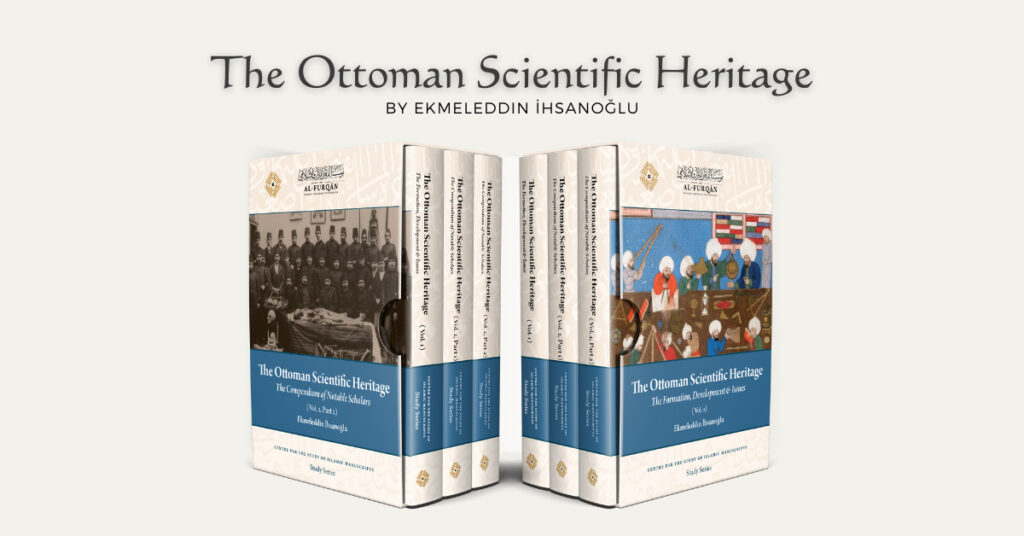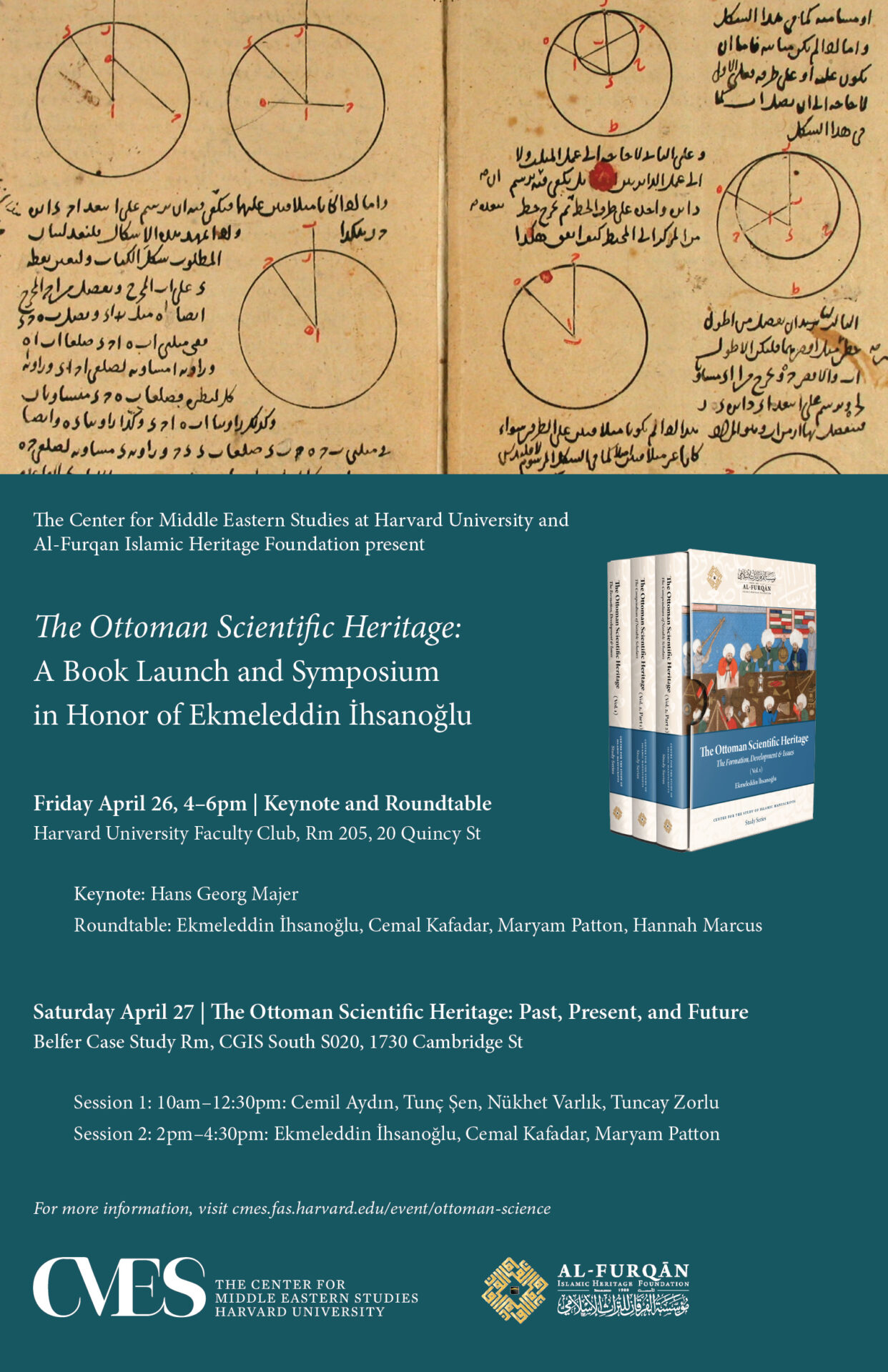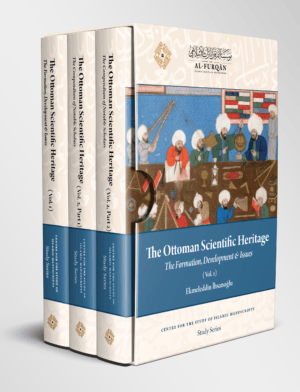Al-Furqan Islamic Heritage Foundation, in cooperation with the Centre for Middle Eastern Studies at Harvard University, have co-organised a two-day symposium entitled "The Ottoman Scientific Heritage: Past, Present, and Future", held on 26-27 April, 2024.
The symposium, which was hosted by Harvard University, was in honour of the recent publication of the English edition of The Ottoman Scientific Heritage authored by Prof. Ekmeleddin İhsanoğlu, a renowned Turkish scholar on Ottoman affairs and former diplomat. The book, published by Al-Furqan Islamic Heritage Foundation, is translated by Ms. Maryam Patton, a PhD candidate in the joint History and Middle Eastern Studies programme at Harvard University.
The first day of the event commenced with opening remarks by Mr Sharaf Yamani, Chairman of the Board of Directors at Al-Furqan Islamic Heritage Foundation. Mr Yamani spoke about the longstanding connection between Al-Furqan Foundation and Harvard University, where his father, His Excellency the late Sheikh Ahmed Zaki Yamani, may God rest his soul, received his second master’s degree.
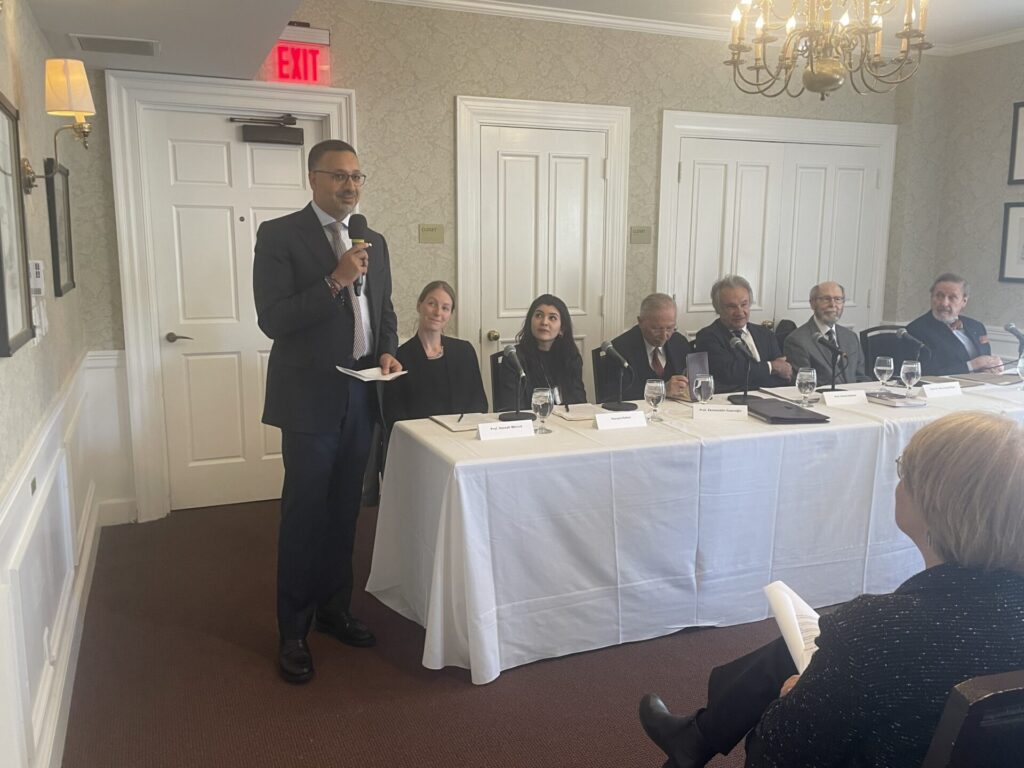
This was followed by a keynote speech by Prof. Hans Georg Majer, from Institut für den Nahen und Mittleren Osten, Ludwig-Maximilians-Universität München. Prof. Majer gave an overview of Prof. İhsanoğlu’s life and career and his contributions to the study of Islamic civilisations and institutions of learning.
A Roundtable discussion on "The Ottoman Scientific Heritage" was held, with the participation of Prof. İhsanoğlu, Ms Patton; Prof. Cemal Kafadar (the Vehbi Koç Professor of Turkish Studies at Harvard University and Director for the Centre for Middle Eastern Studies), and Prof. Hannah Marcus (the John and Ruth Hazel Associate Professor of the Social Sciences in the Department of the History of Science at Harvard University).
During the Roundtable discussion, Prof. İhsanoğlu gave an overview of the book’s contents. Ms. Patton spoke about her experiences in translating the book and working with Prof. İhsanoğlu, and Prof. Marcus discussed the book’s pedagogical value and contributions to the anglophone world for understanding Ottoman science.
The second day of the symposium included two sessions. The first session saw the participation of Prof. Cemil Aydin (Professor of History at UNC), Prof. Tunç Şen (Assistant Professor at Columbia University), Prof. Nükhet Varlık (Associate Professor of History at Rutgers University), and Prof. Tuncay Zorlu (professor of Ottoman History and the History of Science and Technology at Istanbul Technical University). The second session included the participation of Prof. İhsanoğlu, Prof. Kafadar, and Ms Patton.

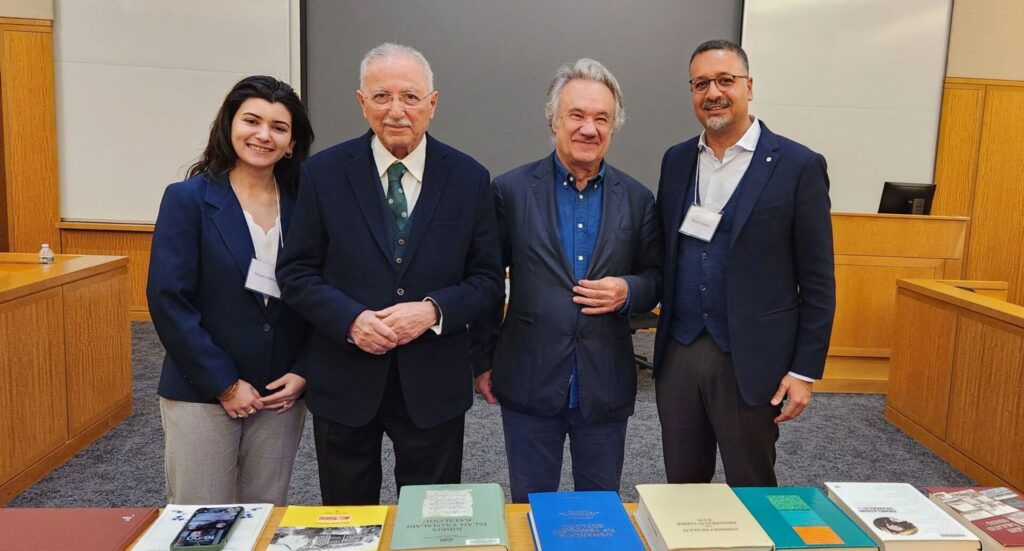

During the first session, Prof. Aydın gave an overview of the field of history of science at Harvard and how the dominant paradigms about science and society emerged. Prof. Şen discussed the ‘munajjim’ and the tensions between the kinds of science ‘munajjims’ performed or studied. Prof. Varlık discussed her history of studying and working with Prof. İhsanoğlu and her path toward the history of disease. Prof. Zorlu spoke about the evolution of the word "engineer/mühendis"throughout Ottoman history.
During the second session, Prof. İhsanoğlu, Prof. Kafadar, and Ms. Patton answered questions from the audience about possible paths forward for this research and the challenges scholars face to support deep textual study.
The symposium concluded with the acknowledgement that further collaboration and support would be required of everyone engaging in this work.
Below are the extended bios of the speakers:
| Ekmeleddin İhsanoğlu is a scholar, diplomat, and a pioneer for the history of Ottoman science and institutions of learning. He was the founder and chair of the first Department of the History of Science in Turkey at the University of Istanbul, and the Founding Director from 1980 for the Research Centre for Islamic History, Art and Culture (IRCICA). In 1989 he founded the Turkish Society for the History of Science. He has authored, edited and co-authored many volumes, including 18 volumes detailing the History of Ottoman Scientific Literature, published by IRCICA. In 2007, he was awarded the Alexandre Koyré Medal by the International Academy of the History of Science for his scholarship on Ottoman science. |
| Hans Georg Majer is Emeritus Professor of the History and Culture of the Near East and Turkology at the Ludwig-Maximilians-Universität, Munich. His main interest is in the history and culture of the Ottoman Empire. His publications include: Vorstudien zur Geschichte der İlmiye im Osmanischen Reich (1978), Das osmanische “Registerbuch der Beschwerden” (Şikāyet Defteri) vom Jahre 1675 (1984), Lexikon der islamischen Welt together with Klaus Kreiser and Werner Diem, as well as countless articles and contributions to edited volumes. |
| Cemal Kafadar is the Vehbi Koç Professor of Turkish Studies at Harvard University and Director for the Center for Middle Eastern Studies. A sampling of his published works includes Between Two Worlds (1995), Kendine Ait Bir Roma (2017), and Treasures of Knowledge: An Inventory of the Ottoman Palace Library (2019), which he co-edited with Gülru Necipoğlu and Cornell Fleischer. |
| Hannah Marcus is the John and Ruth Hazel Associate Professor of the Social Sciences in the Department of the History of Science at Harvard University. Her research focuses on the scientific culture of early modern Europe between 1400 and 1700. Her first book, Forbidden Knowledge: Medicine, Science, and Censorship in Early Modern Italy explores the censorship of medical knowledge. |
| Maryam Patton is a PhD Candidate in History and Middle Eastern Studies at Harvard University writing a dissertation on Ottoman conceptions of time. She translated The Ottoman Scientific Heritage by Ekmeleddin İhsanoğlu into English and will be Assistant Professor of Middle Eastern History at Wesleyan University starting in 2025. |
| Cemil Aydın is a Professor of International and Global history at the University of North Carolina-Chapel Hill. His interests focus on both Modern Middle Eastern History and Modern Asian history. His publications include the Politics of Anti-Westernism in Asia (Columbia University Press, 2007) and The Idea of the Muslim World: A Global Intellectual History (Harvard University Press, Spring 2017), among others. |
| Tunç Şen is an Assistant Professor of History at Columbia University. His research spans the history of science, manuscript culture, the history of emotions, and the social history of scholarship. His first book, based on his award-winning dissertation, is forthcoming and tentatively titled Forgotten Experts: Astrologers and Scientific Expertise in the Ottoman Empire, 1450-1600. |
| Nükhet Varlık is an Associate Professor of History at Rutgers University. Her first book, Plague and Empire in the Early Modern Mediterranean World: The Ottoman Experience, 1347–1600 (Cambridge University Press, 2015) is the first systematic scholarly study of the Ottoman experience of plague during the Black Death pandemic and the centuries that followed. |
| Tuncay Zorlu is a Professor at Istanbul Technical University where he teaches Ottoman History and the History of Science and Technology. His first book, Innovation and Empire in Turkey: Sultan Selim III and the Modernisation of the Ottoman Navy (2008), explores the ramifications of technological transformations that the Ottoman Navy underwent during Sultan Selim III’s reign. |
